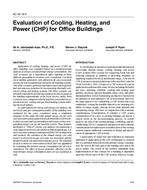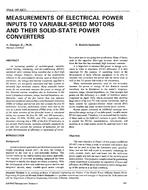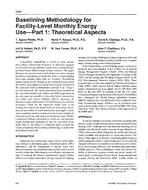Click here to purchase
Buildings are the end-users of water and energy systems, and they have been identified as a major sector of water and energy consumption in an urban framework. Thus, water-energy nexus (WEN) approach to analyze the use of two essential resources in buildings can lead to a more sustainable design and operation of water and energy systems. Typically, water and energy systems in buildings are interconnected in many different ways, and they can be classified as “energy-for-water”, such as energy use for hot water production or energy use for wastewater treatment, and “water-for-energy” such as water use in evaporative coolers, cooling towers or green roofs. The literature review shows that most of the available studies focus on energy-for-water, demand-side management, and on bi-directional interaction of water and energy to some extent. A few important topics on demand and supply-side accounting for WEN approach at the building level such as simultaneous optimization of water and energy systems, exploring the impact of the behavior of occupants and data- driven prediction methods are still poorly studied. To establish a good knowledge in this research area, these topics should be explored in-depth. Despite of advancing the research, implementation of the WEN-approach to design and operate building services should account for existing challenges such as lack of cooperation between different agencies, and inadequate regional pricing of water and energy.
Citation: 2020 Virtual Conference Papers
Product Details
- Published:
- 2020
- Number of Pages:
- 7
- Units of Measure:
- Dual
- File Size:
- 1 file , 2.2 MB
- Product Code(s):
- D-VC-20-C036


